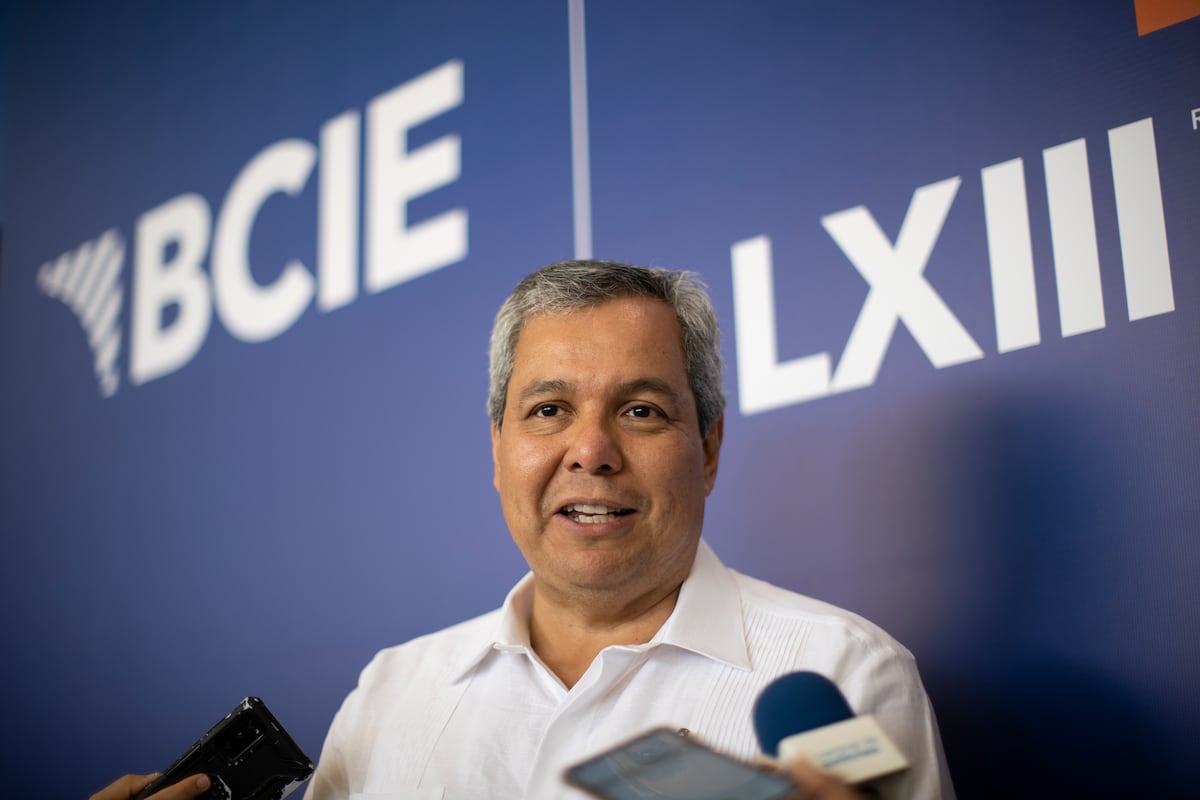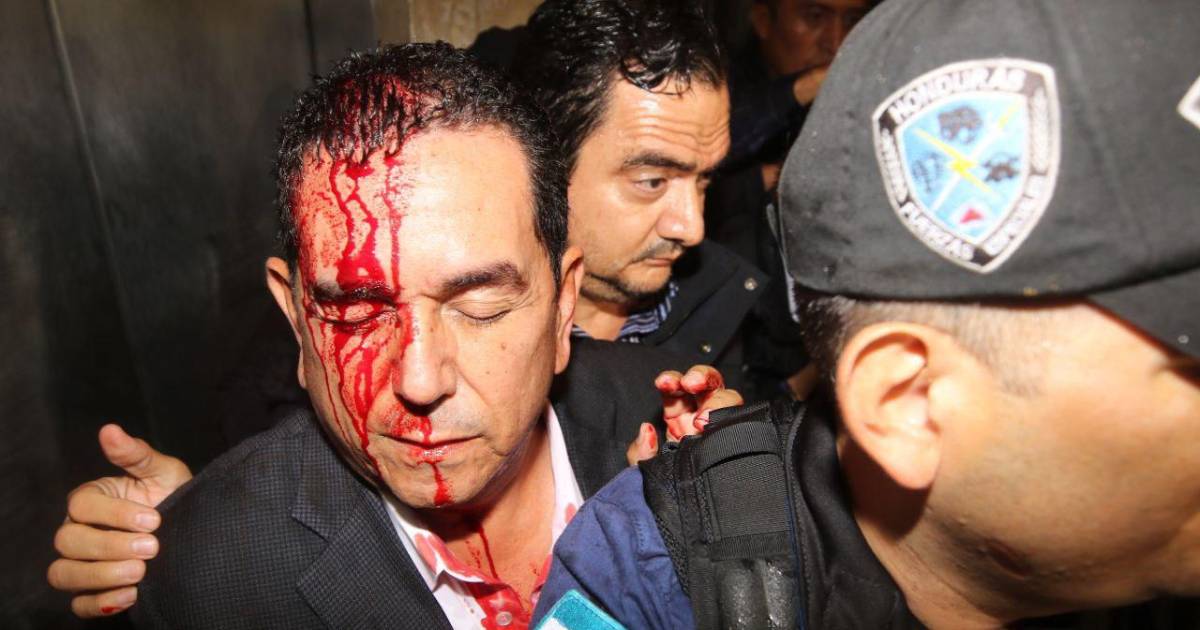Honduran Dante Mossi was not re-elected president of the Central American Bank for Economic Integration (CABEI) this Friday in the Dominican Republic, where the bank’s governors held an assembly to discuss its continuity, among other issues. Officer in charge for another five years. The decision was especially celebrated by opponents of Daniel Ortega and Rosario Murillo, who point to Mossi as “the main financier of the dictatorship” in Nicaragua.
“Mossi’s re-election is certainly an important victory for the Nicaraguan cause because the dictatorship loses an important ally in obtaining resources,” Juan Sebastián Chamorro, a Nicaraguan economist and exiled political prisoner, told EL PAÍS. “However, it is important that this change of president leads to a change in the allocation of resources by CABEI. A policy change is needed to realign the bank’s actions based on what was originally designed. We still need to ensure that the bank does not continue to arbitrarily fund itself as the dictatorship did.”
Just weeks before the appointment of governors in the Dominican Republic, Mossi’s succession as head of CABEI was torpedoed by a barrage of criticism for funding the tenure of the Isthmus’ authoritarian governments that have violated human rights. Also due to lack of transparency in managing resources and increasing administrative costs of the bank.
Over the past five years, CABEI has funded the Nicaraguan regime 3,513 million dollars, representing the state’s annual budget. As a result of human rights abuses in 2018, Ortega-Murillos has come under international isolation and has been hit by international sanctions, including freezing loans from multilateral institutions such as the Inter-American Development Bank (IDB) and the World Bank. (PM). However, Mossi has shrugged it off and bragged about his relationship with the presidential couple, whom a United Nations panel of experts has accused of committing crimes against humanity.
“Dictatorship must continue to be isolated. Financial channels should be closed. So the incident related to CABEI did not end here. Mossi pledged 3,500 million to the dictatorship. “We must ensure that the bank, under its new president, operates under standards that respect human rights,” stressed Felix Maradiaga, an exiled political prisoner.
Laura Chinchilla, former president of Costa Rica, celebrated the decision of the CABEI governors. He asserts that under Mossi’s direction the bank has become “the international partner of choice of the dictatorship that badly governs Nicaragua.”
Join EL PAÍS to follow all the news and read without limits.
Register
“Excessive funding was provided, which allowed the Ortega-Murillo regime to remain in place and have resources without adequate control mechanisms for its operation. In this way, as a Central American citizen, I celebrate this decision not to re-elect the current president of CABEI. At a time when CABEI needs a capital increase to help regional countries “We are there, but with guarantees of serious and effective governance. We need a CABEI without blind political alliances with regimes like Nicaragua. The current president does not guarantee these kinds of conditions,” Chinchilla said.
Three more months in office
Mossi will remain in office for another three months, until next November, when CABEI leaders and officials must already be replaced. While presenting the opening remarks of the LXIII Board of Governors, Mossi proposed the creation of a CABEI group similar to the World Bank Group so that countries can use the bank’s good credit rating to secure their loans. He also proposed to request a new capital increase, although he did not directly mention it, as he sought to be re-elected.
Although they did not reveal which countries opposed Mossi’s continuation, Eduardo Trejos Lalli, former director of CABEI and Costa Rica’s representative in the financial institution until May 2022, told EL PAÍS that there were three aspects in the Assembly of Governors: ” The sector that promotes his re-election. I don’t know who they are, but I can imagine them. The other department was completely against Mossi’s continuation. What’s more, they tried to remove him immediately so that he wouldn’t continue to cause damage within the bank. And the other side informed Mossi that he would no longer be president when his term ended. The other information I have is that they They also asked for three months advance payment before departure and that was what finally won.
Trejos also played against Mossi against indicators of a bank that has collapsed under his management. “That is why we as various directors took it upon ourselves to inform our governors a year in advance that the bank was not on the right track. Strict measures should be taken for further improvement. From there, probably, came the need for Mossi to try to improve the capital, but in the current situation that the bank is in, until it is fixed, it is like throwing water in a basket,” explains Trejos.
On March 16 of this year, during a debate convened by the Inter-American Dialogue in Washington, Mossi said that “its policies don’t matter” to fund the Ortega and Murillo regimes. Projects are enabled. “That is what we are focusing on, so we keep politics aside,” the official said. In addition, he emphasized that CABEI does not issue “checks to Daniel Ortega” but rather on projects and development projects such as basic services, hospitals and roads. “We work for Nicaragua, not for the president (Ortega),” Mossi said.
However, Trejos maintains that CABEI has been characterized by good proportions and by creating long-term development plans for decades. “Projects that will have a really deep impact on the Central American region, both in terms of ports, airports, highways, hospitals…very important infrastructure that, if done right, will change the dynamics of the country. One of the worst experiences we have is President Mossi’s decision to create various mechanisms to finance the current expenditure of countries. That’s not really the historical concept we’ve had within the bank,” Trejos explains.
Follow all international information Facebook And Twitteror inside Our weekly newsletter.




:format(jpeg)/cloudfront-us-east-1.images.arcpublishing.com/gfrmedia/ZQRHYKU4PZET7HCT6ECILFGM5U.jpg)
